Recycled-fishing-nets – Chemical-Fiber 17-05-2022 - Arhive
Recycled-fishing-nets – Chemical-Fiber
Some state laws allow incentives to turn plastics into fuels as well as other plastics
lastic pollution is virtually everywhere on earth, and the public is increasingly concerned about the buildup of plastic litter in neighborhoods, parks, and beaches as well as enormous garbage patches in the world’s oceans. Haunting photos of animals entangled in plastic cords or speared with plastic straws appear regularly on social media. And news reports about microplastics contaminating water and food stoke concern about how to keep this ubiquitous and popular synthetic material out of the environment.
In the US, people are asking their elected leaders to reduce plastic pollution.
To that end, environmental advocates are seeking polices to reduce the use of single-use plastics such as beverage bottles and snack bags. They point out that less than 10% of plastic used in the US ends up recycled.
Meanwhile, the American Chemistry Council (ACC), the major trade group for the chemical industry, is offering another plan—policies to promote chemically recycling plastics by breaking them down into molecular building blocks for reuse. This process, also called advanced recycling, differs from mechanical recycling. The mechanical method, still in use, chips up used plastic into bits that are blended into virgin plastic, which is made from oil or natural gas, to give it recycled content.
“Policy makers are very interested” in advanced recycling, says Craig Cookson, senior director of plastics sustainability for the ACC. “Their constituents are coming to them and saying they want to see greater amounts and more types of plastics recycled in their communities.” Recycled-fishing-nets – Chemical-Fiber
Lawmakers in states are responding to the ACC’s efforts. Earlier this year, Kentucky, Mississippi, South Carolina, and West Virginia enacted laws that ostensibly promote chemical recycling of used plastic. They joined 14 other states that have enacted similar legislation since 2017.
But environmental advocates say that these laws are the wrong way to go, in particular because existing processes for advanced recycling of plastics are energy intensive and generate pollution. The advocates also question applying the term recycling when the processes are used to generate fuels.
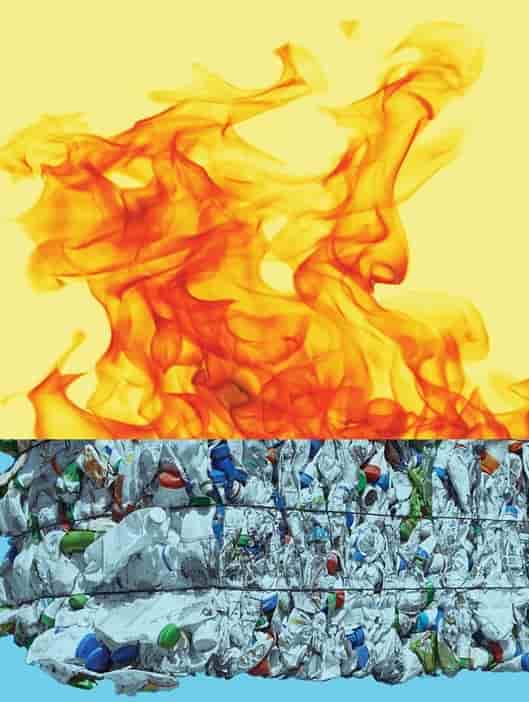
-Partnership with Danish Plastix to market recycled plastics waste from fishing nets
Braskem (São Paulo, Brazil; www.braskem.com) said it is supporting the efforts by Danish company Plastix (Lemvig; www.plastixglobal.com) to market recycled plastics fibre waste of old fishing nets and other marine debris collected at various ports.
A Braskem press release said it has “joined forces with Plastix to help them optimise the recycling process and accelerate the introduction of this innovative and high-quality circular plastic to the market”. Recycled-fishing-nets – Chemical-Fiber
“Plastix is a small company with a very limited sales force. Braskem is lending its technical and commercial teams to help accelerate the uptake of this recycled material and help demand grow faster than it would without the partnership,” a Braskem spokesperson told Plasteurope.com.
Fibre waste from fishing nets and ropes made from various plastics are difficult to recycle but the Danish recycler says it has committed itself to developing industrial solutions to recycle them.
Over the past few years, Plastix has made the sorting and recycling process technically and economically feasible, producing high-quality feedstock for many applications and any various production technologies ranging from packaging to pipes and durable consumer goods, Braskem said.
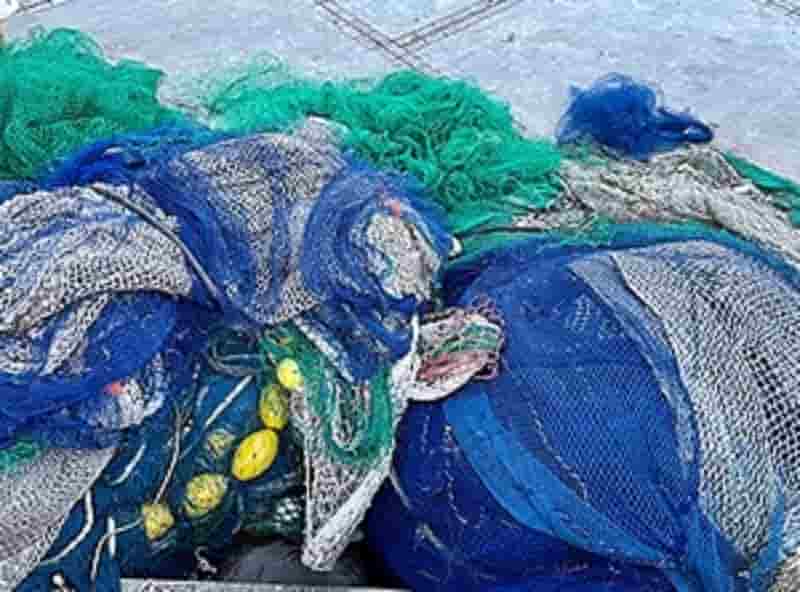
-Oceana cites PET recycling disparity
NGO says increased PET bottle collection efforts may not focus on parts of the world where plastic flows into oceans.
Oceana Inc., Washington, says a recent study it commissioned has found targets set by the five largest soft drinks producers “would require collecting an additional 2.57 million metric tons of plastic bottles for recycling each year, [but] “there is no coherent strategy in any global region apart from Europe to reliably increase the supply.” Recycled-fishing-nets – Chemical-Fiber
Oceana says its analysis was conducted by United Kingdom-based Eunomia Research & Consulting. It examined recycled content pledges made by Coca-Cola Co., PepsiCo, Nestlé, Danone, and Keurig Dr Pepper and attempted to consider the feasibility of hitting those targets and the potential impact on ocean-bound plastic.
In the latter case, Oceana says it is “calling on major beverage companies to adopt or expand strategies that prioritize refillable bottles,” adding, “refillables have proven to be very effective at reducing waste.”
Oceana’s Strategic Initiatives Director Dr. Dana Miller says, “This report uncovers some worrying realities. It seems improbable that the recycled content pledges by large soft drink companies will be met and regardless, they won’t go far in helping the oceans.”
The five global companies have pledged to increase post-consumer recycled content in their polyethylene terephthalate plastic (PET) bottles ranging from 25 to 50 percent by 2025. Oceana says Eunomia’s analysis shows that “to reliably increase the supply of recycled PET for the production of bottles [would] likely require significant government intervention.”
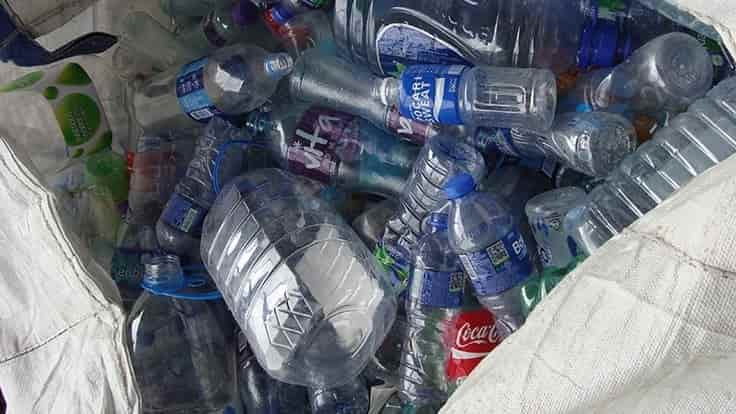
At this year’s Techtextil, Oerlikon Polymer Processing Solutions will be presenting the trade audience with new applications, special processes and sustainable solutions focusing on the production of industrial nonwovens.
Between June 21 and 24, the discussions in Hall 12.0, Stand C60 will also concentrate on airbags, seat belts, tire cord, geotextiles, filter nonwovens and their diverse applications. Recycled-fishing-nets – Chemical-Fiber
Among other things, the company will be showcasing new technology for charging nonwovens that sets new standards with regards to quality and efficiency. “With our unique, patented Single Filament Layer Technology, we offer a sophisticated and simultaneously gentle high-tenacity (HT) yarn process for manufacturing seatbelts, airbags and other applications made from industrial yarn,” explained Dr. Roy Dolmans, Technology Manager IDY and R&D Filament Processing.
With its hycuTEC hydro-charging solution, Oerlikon Neumag offers a new technology for charging nonwovens that increases filter efficiency to more than 99.99%. For meltblown producers, this means material savings of 30% with significantly superior filter performance. For end users, the consequence is noticeably improved comfort resulting from significantly reduced breathing resistance. With its considerably lower water and energy consumption, this new development is described as a future-proof, sustainable technology.
Also on show will be the company’s offering of low stretch, ultra-high tenacity, high rigidity industrial yarns that are designed to offer outstanding properties for the demanding tasks carried out by geotextiles; for example, as geogrids in the base course system under asphalt. Normally, geotextiles have extremely high yarn titers of up to 24,000 denier. Oerlikon Barmag system concepts simultaneously manufacture three filament yarns of 6,000 denier each. Due to the high spinning titers, fewer yarns can be plied together to the required geo-yarn titer in a more cost- and energy-efficient manner.
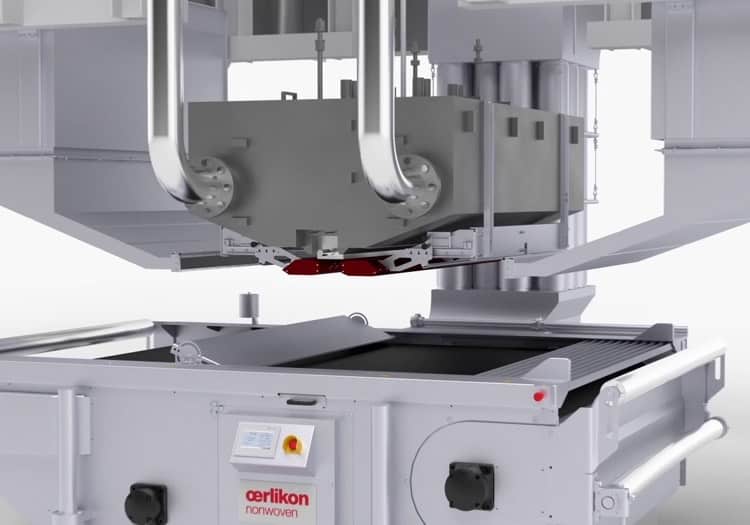
-Sinowin Chemical Fiber starts to construct 80KTA nylon 66 industrial product project
80KTA nylon 66 industrial products project, 20KTA nylon 66 special functional fiber On the morning of May 6 2022, the groundbreaking ceremony of Sinowin Chemical Fiber’s nylon 66 industrial products project was held in Henan Special Nylon Town Industrial Park.
The project, designed with an annual output of 80,000 tons of nylon 66 industrial products, is the second project started in the special nylon town in the year of 2022, and is also the single project with the highest investment intensity and highest output value. Recycled-fishing-nets – Chemical-Fiber
The total investment of the project is 3 billion yuan (around 445.5 million USD). The production focuses on high-performance composite materials for vehicles, and products will be mainly used in new energy vehicles, racing cars, aerospace and other fields.
After the project is completed and put into production, the annual increase in profits and taxes is estimated to be 600 million yuan, and more than 200 people will be employed.
On March 1, Sinowin Chemical Fiber has held the groundbreaking ceremony for the 20KTA nylon 66 special functional fiber intelligent demonstration plant project, as an in Qi County, Hebi City, Henan Province.
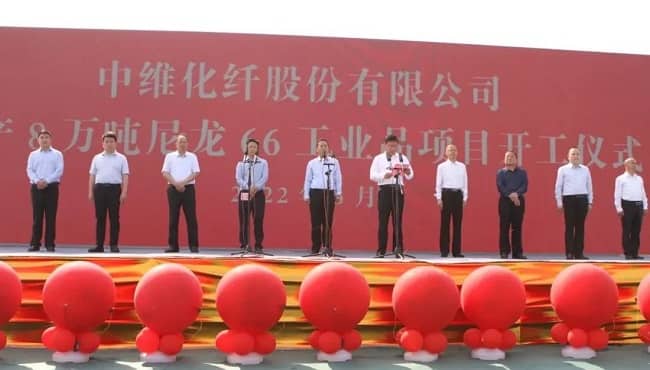
-Italian Textile Machinery: Drop In Orders For First Quarter 2022
The orders index for textile machinery for the first quarter of 2022, processed by ACIMIT, the Association of Italian Textile Machinery Manufacturers, shows a slight decrease (-4%) compared to the same period from January to March 2021. In absolute value, the index stood at 117 points (basis: 2015 = 100).
On the domestic front orders shrank by fully 22%, whereas abroad the decline was more contained (-2%). The absolute value of the index in Italy was set at 136 points. On foreign markets, the index scored a value of 114.9 points.
ACIMIT President Alessandro Zucchi commented that: “The global pandemic and Russian-Ukrainian conflict have accentuated the climate of uncertainty for the whole of the textile industry. Criticalities already present in the past year (such as a sharp rise in prices of raw materials and their scarce availability, as well as increased transport costs) are now accentuated more than ever.
While orders appear to have settled on foreign markets, domestically, following a strong recovery in 2021, we now have to deal with a general negativity permeating the Italian economy.” Recycled-fishing-nets – Chemical-Fiber
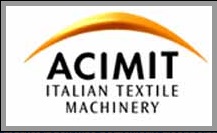
Recycled-fishing-nets – Chemical-Fiber
